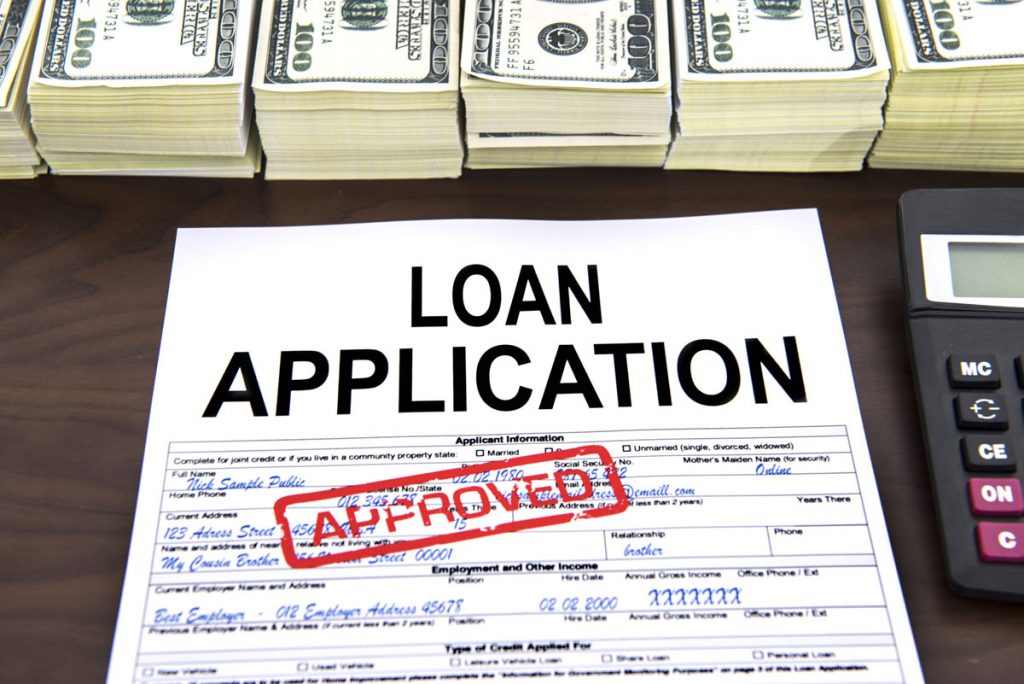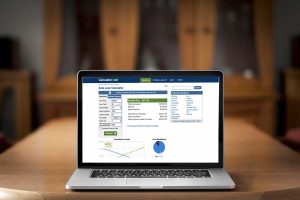Our for a loan? Wondering whether you'll get approved? You're probably trying to find out more about the decision making the process at hand, including the question of whether or not lenders look at Equifax or Transunion to get more information. That's what we set out to explore in this post - and we bring you some answers.

Surprisingly, most lenders don't directly use the scores from the three major credit reporting agencies when considering a loan because these scores are classified as educational; that's to say, they're meant to educate consumers on the health of their credit and what they must do to improve it. In reality, lenders use actual FICO, or Fair Isaac Corporation, scores to help determine who gets a loan and who doesn't.
FICO scores, however, are generated by the information reported by all three major reporting agencies that include TransUnion, Equifax, and Experian. So indirectly, your FICO score is still impacted by the information that's available on you at these agencies, although it's not an either/or situation. Rather, it's a blend of all the credit information that's associated with you. If you score high on the FICO scale, lenders will be eager to write loans. If you score low, not so much.
What information, exactly, does FICO harvest in generating your credit score?
- Your payment history: How often do you miss payments? When was the date of your last missed payment. Are any of your accounts currently in arrears?
- The total amount you owe: This is your debt-to-credit ratio. What you owe should be less than 30 percent of the credit you have available. This will vary with your credit limits. For instance, if you carry a balance of $8,000 on a card that offers a $9,000 limit, you may not score as high as someone who carries a $40 balance on a $300 limit. It's all about the ratio of what you've spent, compared to what you have available.
- How long you've had credit: Longer is better. New accounts may actually count against you.
- Your credit mix: What's your account mix? Is it all credit cards? Or does it include a home mortgage, a car payment and a personal loan? As long as all accounts are current and have solid payment histories, neither should count against you.
- The number of new accounts on your reports: Lenders like to see established credit accounts. New accounts, especially if there are multiples of them, could flag in the system to make you a credit risk.
What is the difference between TransUnion and Equifax?
Because TransUnion and Equifax are two separate reporting agencies, they place different emphasis on what is, essentially, the same information. This is why your TransUnion score is often different from your Equifax score.
Equifax uses an 81-month-based model of credit history, while Equifax uses a 7-year determination. Equifax also separates credit into open and closed accounts, assigning different importance to accounts that were closed years ago.
TransUnion, alternately, places heavy emphasis on employment history, including more extensive information regarded hiring dates, employer names, and job positions. This agency also uses color codes to sort their results into current, past-due, and unpaid accounts.
When you apply for a loan or a line of credit, you won't know exactly which scores the lender will use to determine your creditworthiness, but you can get an idea by pulling your FICO score yourself. You may have a credit card that offers this service already. If not, you can always sign up at a free credit-monitoring agency to find that information. It's good to be prepared and to know what the lender is liable to find when he checks your credit. So, if you're going to check your own score, do it before approaching a bank or other lender for a loan.
What credit score do car lenders use?
Car lenders, like other lenders, are most concerned with your FICO score. The difference when it comes to a car loan, however, is that FICO has narrowed your credit score down a bit more to create an actual FICO Auto Score. To do this, they've used research that determines how your credit is evolving over time -- are you paying more than the minimums due? Are you paying off accounts? This information is based on 30 months of history and offers up a different range of scores. Traditionally, your FICO scores runs between 300 and 850, while a FICO Auto Score runs between 250 and 900.
What is a good Equifax credit score? What is a bad Equifax credit score?
Equifax scores range from 300 to 850, and are measured in increments. An excellent score is one that ranges between 800 and 850. Scores that range between 740 and 799 are considered very good. A good score is between 670 and 739, and a fair score from 580 to 669. Anything below 580 is a poor score and one you'll want to work to repair before applying for most loans.
Many lenders are happy to work with consumers who boast scores of 670 and higher, considering them low-risk applicants. Applicants who fall within the fair-reporting range are subprime and may still be able to secure a loan but may pay higher interest fees as a result.
What is a good TransUnion credit score? What is a bad TransUnion credit score?
TransUnion uses something called VantageScore 3.0 to help determine individual scores. These scores are based on an alphabetic categorization:
- 781-850 = A
- 720-780 = B
- 658-719 = C
- 601-657 = D
- 300-600 = F
While your credit score is never the single, determining factor in whether you're able to secure a loan, it plays a huge roll that can't be underestimated. The health of your credit is important, but even if you've had issues in the past, there are multiple things you can do to help repair and rebuild a low credit score:
- Request copies of your credit reports from all three reporting agencies and study them for discrepancies or outdated entries. If you find items that should have dropped off or items that have been paid but are still showing not paid, dispute them right away. The credit reporting agency is required by law to remove negative items that are not legitimate debts.
- Contact any creditors to whom you may owe money and ask them to reduce the amount you owe in exchange for immediate payment. You'll need to have the money in-hand when you do this. Surprisingly, many creditors are willing to settle with you in this way.
- Pay your current bills on time, and send more than the minimums due if possible.
- Pay down high balances on your current cards to free up more credit. This will improve your debt-to-credit ratio, raising your score quickly.
- Consider taking out a secured credit card. This type of credit card can help you rebuild spotty credit.
- Register for an account with a free monitoring company. Often these companies have great recommendations as to which secured credit cards you have a good chance of obtaining.
Not enough emphasis can be placed on taking good care of your credit. It's not a lesson taught in schools, yet it's one of the most basic ways to get ahead, and to stay ahead, financially. If your credit score is lower than you'd like it to be, use the tips listed above to help you raise it back up to excellent.



